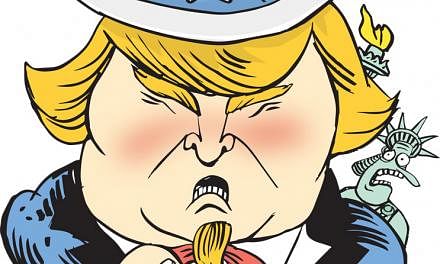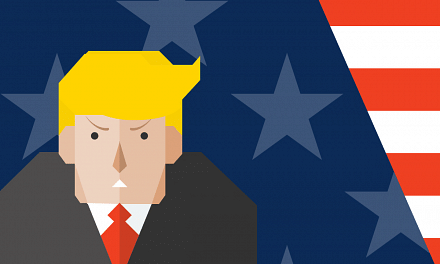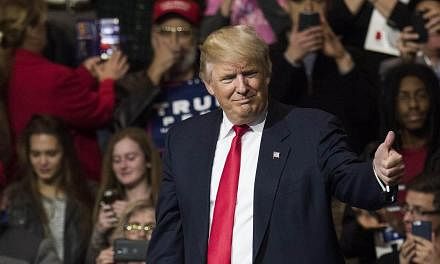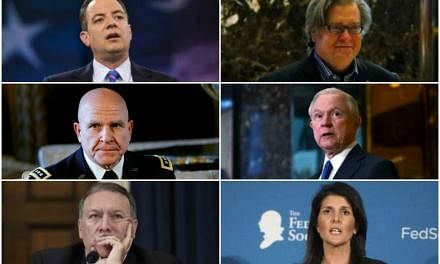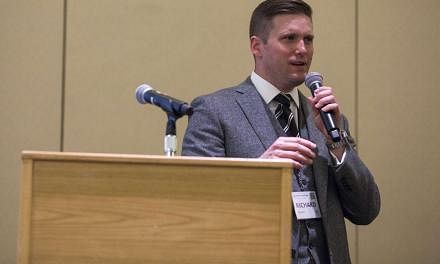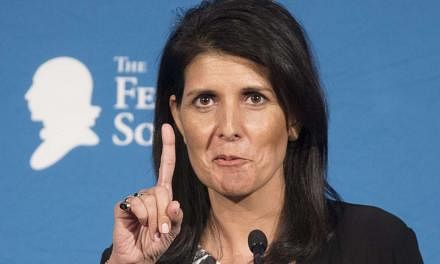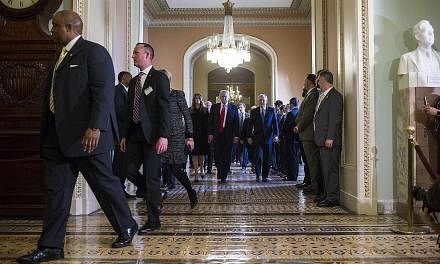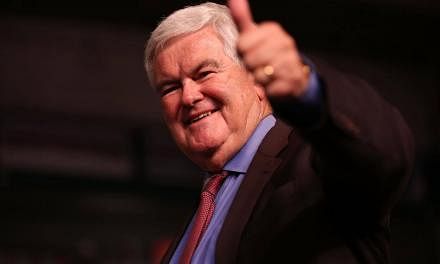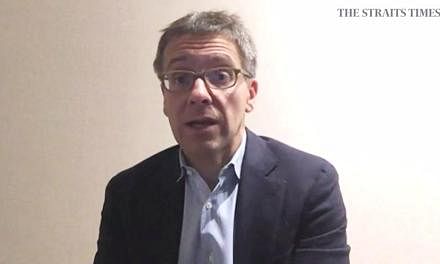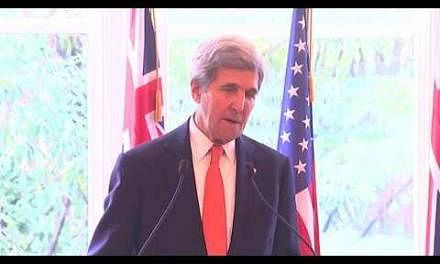"Amazing," said Mr Carroll Doherty, almost to himself, as he showed the slide on the screen in a conference room in the authoritative Pew Research Centre in Washington, DC on Thursday (Nov 10).
The slide dated October 2016 showed the conclusion of Pew's research on attitudes of Republican and Democrat supporters on foreign trade agreements.
In 2014, 36 per cent of Republican supporters considered free trade agreements a bad thing.
By the middle of 2016, that number had shot up to 68 per cent. Only 24 per cent considered them a good thing, down from 55 per cent in 2014.
The variation among Democrats was not anywhere as stark as that of Republicans. In 2014, 30 per cent of Democrats polled saw free trade agreements as bad; by the middle of this year, that had only gone up to 31 per cent.
The US' demographic shift - labelled by some the "browning of America" - with more people and especially more minorities in more densely populated cities, is a trend thought to be to the advantage of the Democrat Party.
But the ground had shifted under the Democrats' feet for other reasons, among them the perceived downside of free trade agreements, blamed by the Republicans - and Democrat Senator Bernie Sanders whom Mrs Hillary Clinton elbowed aside in the primaries - for the loss of hundreds of thousands of jobs.
The party was also blindsided by Republican nominee Donald Trump's winner-take all campaign style. "We never thought he would be this strong a contender," one Democrat Party organiser admitted to me in Cleveland, Ohio, the day before the election.
The conventional mainstream media, based in big cities and seeing the campaign through its own liberal lens, was obsessed with covering every outrageous remark by Mr Trump and missed the shift, or did not take it seriously.
The candidate, who has been described by those who know or have worked with and for him as driven to win, outflanked the traditional media with his unconventional style. And he found a willing audience.
"There's not necessarily an isolationism, it's not as if the public wants to withdraw from the world," said Mr Carroll, Director of Political Research at Pew Research Centre.
"But there is certainly a wariness about global involvement," he said. "All of our polling suggests that after two wars in the past 15 years, the public is just dubious about the benefits of global involvement in a way we haven't seen in a while."
"What we've seen is a surge of opposition in rank and file Republicans to foreign trade. Now you have a situation where Republicans are about to take control of Congress and the White House for the first time in more than a decade and you will probably see the least support in many years among Republicans for foreign trade."
"In the past, trade and globalisation were relatively low importance for most people. Donald Trump made it front and centre in a way it had not been before."
The real estate tycoon from New York City challenged the conventional wisdom of previous candidates like Republicans Mitt Romney and John McCain, and Democrat President Barack Obama, who had talked for years turned free trade into a mantra, an inevitable part, of globalisation. And he hit the right buttons.
There were certainly other factors involved. Latent racism - though African-Americans would not call it latent - after eight years of an African-American President was one nerve he touched, analysts say. Another factor was reluctance among conservatives - even women - to vote a woman into the top job. Yet another was Mrs Clinton's own background as part of the Washington, DC elite who Mr Trump railed against at his rallies.
His anti-abortion, pro-life position won him conservatives as well. His tough talk on immigrants hit a nerve; according to Pew's research, 30 per cent of liberal Democrats are in favour of allowing refugees from Syria and Iraq to come to the USA - but 80 per cent of Republicans see them as a threat.
Meanwhile the liberal media's scornful treatment of Mr Trump only fed his narrative of being an outsider ganged up on by the liberal establishment, and probably further solidified his support base.
"One of the ways he won was by speaking in a language people clearly understand, especially lesser educated Americans," Mr Carroll said. "And finding something to blame was a pretty effective strategy."
In the end, though Mrs Clinton won the popular vote, she was left in the dust in what matters in the American political system - the Electoral College.
Mr Donald Trump found a wave and rode it, turned adversity into advantage, and comprehensively outplayed not just his rival, but almost every political pundit.
On Friday (Nov 11), in one of his first interviews after winning, he was asked by the Wall Street Journal whether his campaign rhetoric had gone too far.
His response : "No. I won."

